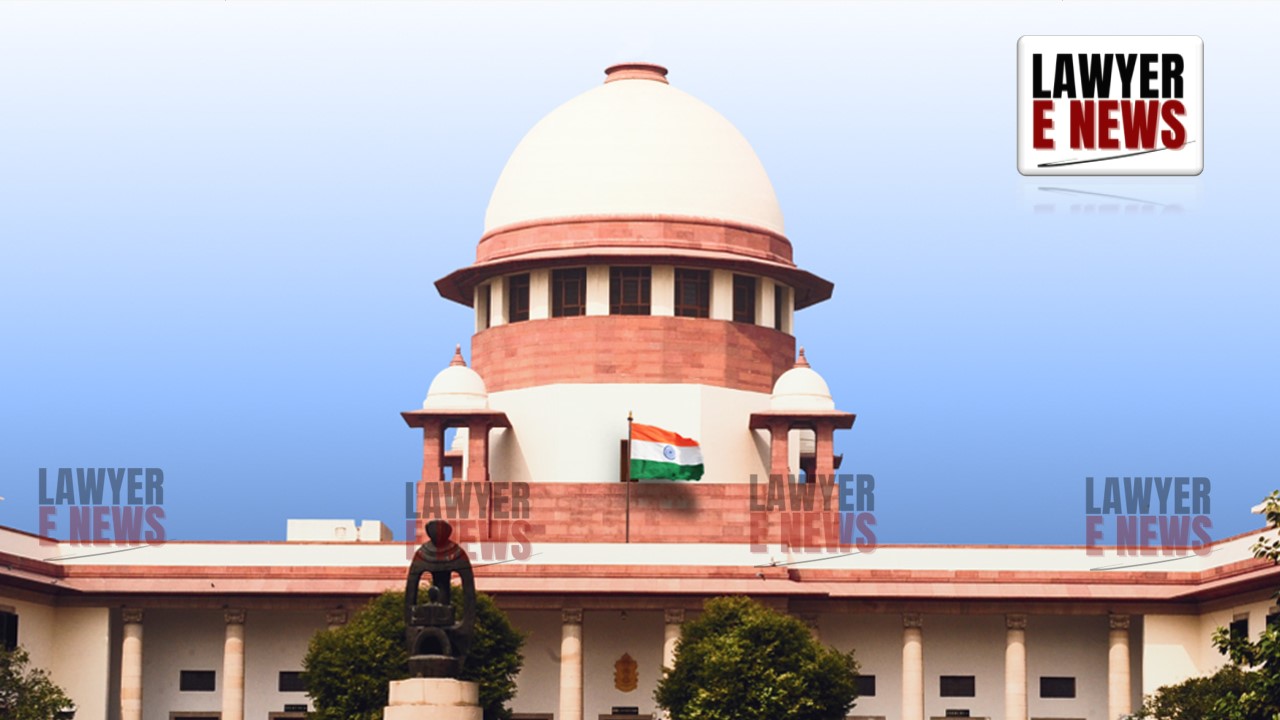-
by Admin
15 February 2026 5:35 AM



Supreme Court sets aside Madhya Pradesh High Court's order on child custody, ruling best interests of minor take precedence over legal rights of parents and relatives. In a significant ruling, the Supreme Court has overturned a Madhya Pradesh High Court judgment ordering the transfer of custody of a minor child to her paternal family. The bench, comprising Justices Abhay S. Oka and Augustine George Masih, emphasized that the welfare of the child, rather than legal rights of parents or relatives, should be the paramount concern in custody matters. The case involved the custody of a two-year-old child whose mother passed away under suspicious circumstances. The court ruled that such sensitive cases should be decided through a proper guardianship proceeding rather than a writ of Habeas Corpus.
The case arose after the tragic and unnatural death of the mother of a female child, aged 11 months at the time, on December 27, 2022. Allegations surfaced that the mother's death was a result of hanging, and the child’s father, along with her paternal grandparents, were implicated under Sections 304-B and 498-A of the Indian Penal Code, as well as provisions of the Dowry Prohibition Act. Following the mother's death, her maternal relatives, including her sisters and parents, took custody of the minor child. The father was arrested and later released on bail in April 2023.
The paternal relatives filed a Habeas Corpus petition under Article 226 of the Constitution in the Madhya Pradesh High Court, claiming that the maternal family had unlawfully taken the child without the father's consent. On June 23, 2023, the High Court ruled in favor of the paternal family, ordering the maternal relatives to hand over the child’s custody.
In its judgment, the Supreme Court underscored that the welfare of the child should be the guiding principle in such cases. The court criticized the High Court's mechanical application of the father's legal rights as the natural guardian without considering the psychological impact on the child, who had been living with the maternal family for over a year.
"The court cannot treat the child as movable property and transfer custody without even considering the impact of the disturbance on the child," noted the bench. Justice Abhay S. Oka, writing for the bench, emphasized that the court must act based on humanitarian considerations and in the best interests of the minor.
The Supreme Court also highlighted the limitations of using Habeas Corpus to determine child custody. The court observed that the writ of Habeas Corpus is not the appropriate mechanism to resolve such complex issues, where the child's welfare is at stake. "Only in substantive proceedings under the Guardians and Wards Act can a competent court decide the issue of custody and guardianship," the bench ruled. The ruling emphasized that family courts, equipped with specialized facilities for interacting with minors, are better suited to determine child custody matters.
The court referred to multiple precedents where it has been held that while a natural guardian has legal rights, the child's welfare must always come first. The bench stressed that mere illegality of custody cannot automatically warrant a change in custody without an inquiry into the child's welfare.
The court directed the maternal relatives to apply for guardianship under the Guardians and Wards Act within two months, and assured that the father and paternal grandparents would be given supervised access to the child in the meantime.
The judgment reaffirmed the established legal principle that while the father, as the natural guardian, holds certain legal rights, these rights are subordinate to the welfare of the child. "The welfare of the minor must override the legal claims of the parents or relatives," the court reiterated. The bench pointed out that the High Court’s decision failed to adequately consider the child’s emotional well-being, focusing instead on the father's rights under the law.
The court recommended that the appropriate venue for deciding custody should be a family court or civil court, which can assess the child’s best interests more thoroughly by interacting with the child, appointing psychological experts, and recording evidence from both parties.
This ruling from the Supreme Court sends a clear message that in child custody cases, the welfare of the child takes precedence over the legal rights of parents and relatives. By rejecting the High Court's order to transfer custody through a Habeas Corpus petition, the court emphasized the need for a thorough and sensitive approach through guardianship proceedings. The decision reaffirms the judiciary’s commitment to protecting the emotional and psychological well-being of minors in custody disputes.
Date of Decision: September 6, 2024.
Somprabha Rana & Ors. v. State of Madhya Pradesh & Ors.
